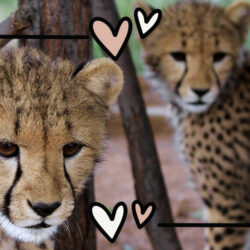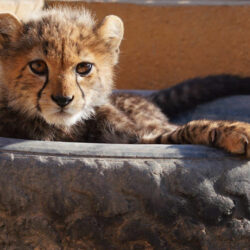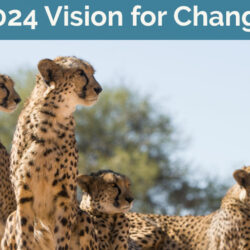2023 Executive Summary – A Year of Progress and Renewed Commitment
-
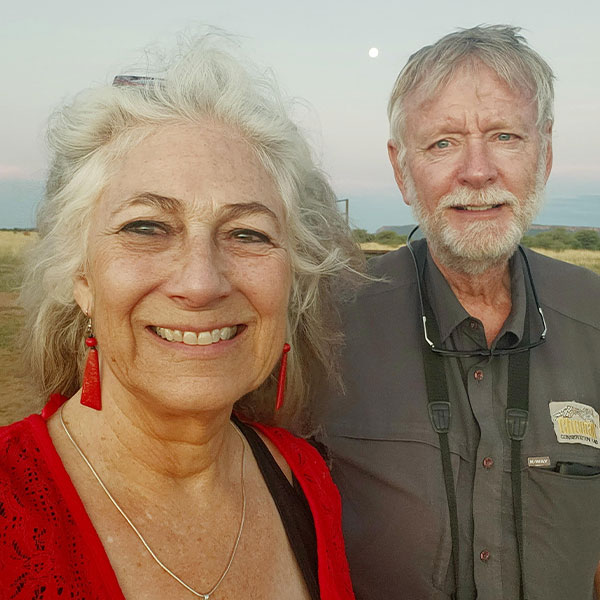
- by Dr. Laurie Marker January 2, 2024
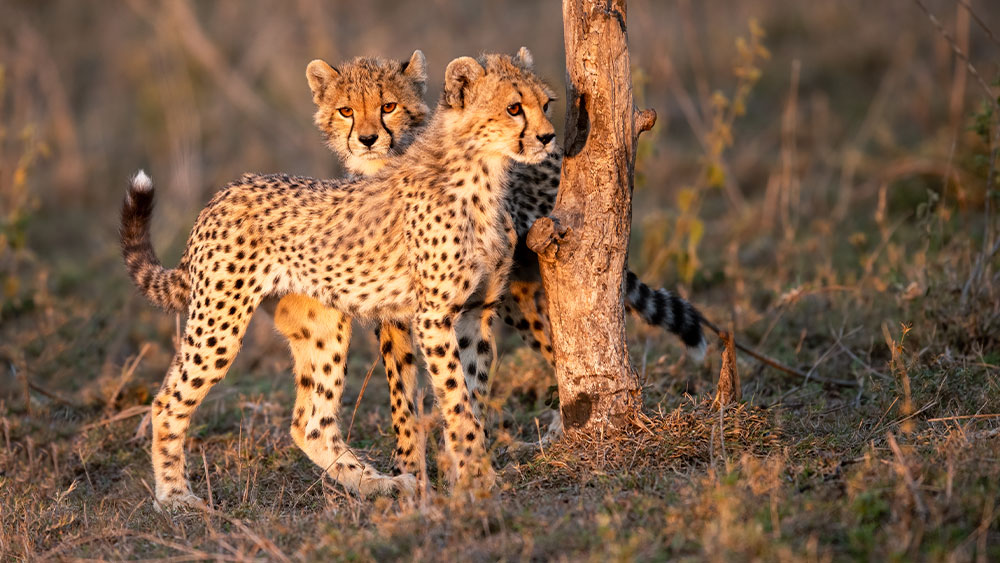
CCF’s 2023 Journey and Our Vision for 2024
I’d like to thank you for your on-going support during 2023, it was a very busy and productive year. And, looking ahead, 2024 will be equally as busy and productive.
2023 started fast, our main project was to finish our Rescue and Conservation Centre (CRCC) in Geed-Deeble, Somaliland, so we could move all the cheetahs from the Safe Houses in Hargeisa to the Centre and finalize all the 5 leases we had to live and care for the animals. We were able to move our first group of cheetahs in February. And the rest followed regularly as we completed over 30 large enclosures at the CRCC.
In addition to the move, our teams continued with projects aiming at trying to stop the Illegal Wildlife Trade (IWT). We have been fortunate to have received several large grants to support our work on the ground in Somaliland, from the UK/DEFRA, EU/WHH, IUCN/SOS, Taiwan government, and USFWL. These grants have enabled us to have workshops on developing conservancies, and develop, translate, and present education materials, including our Future Farmers of Africa training books, our Teachers Guide and Student booklets. We have coordinated the development of a Somaliland Association of Community Based Natural Resource Management Support Organizations (SACSO) similar to that of NACSO here in Namibia for which we have been a long time member. In addition our grants have helped bring together law makers to strengthen the wildlife and forestry law in Somaliland against the illegal wildlife trade and for the government to develop national parks, protected areas and conservancies. This law will be presented to the Somaliland parliament in early January.
By July we had moved all our animals from Hargeisa to the CRCC, which included 94 cheetahs, a leopard and a caracal. The cheetahs are thriving in their new facilities and are able to walk and run on dirt, climb trees and enjoy the natural enclosures they are now living in. Things had been relatively quiet during the year, but sadly, we had three confiscations that came in November and December, with the last 3 cubs arriving the evening of the 25th of December. The training and capacity building we have done during the year helped with the smooth work together between the Ministry of Environment and the Police Force during the confiscations. We have several consultants working with us on this project and are pleased with their work going forward. We had our Somaliland field team come to Namibia this year to learn field techniques from our Namibia Research Teams, supported by the IUCN/SOS grant. This was a great knowledge exchange.
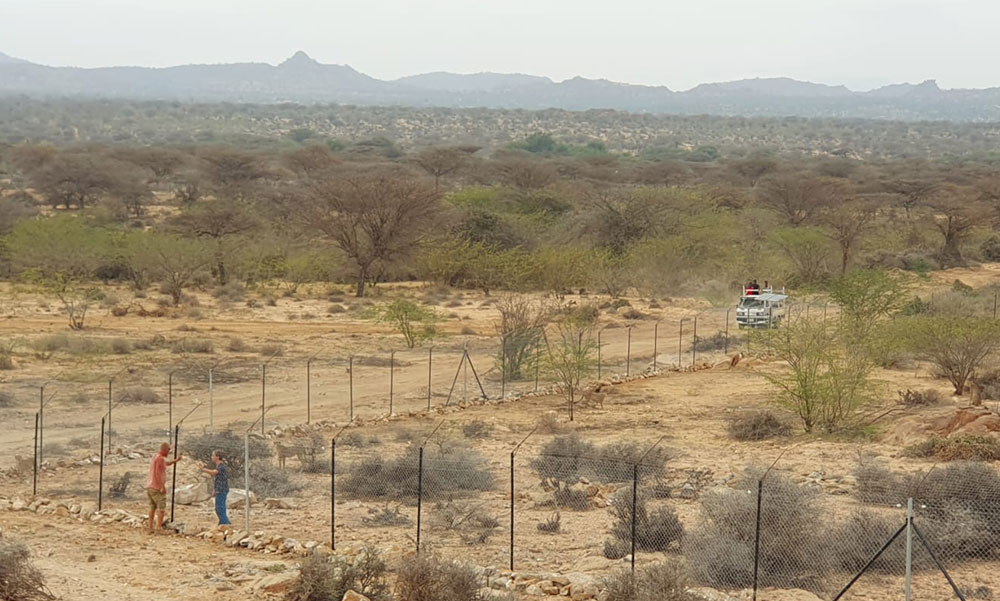
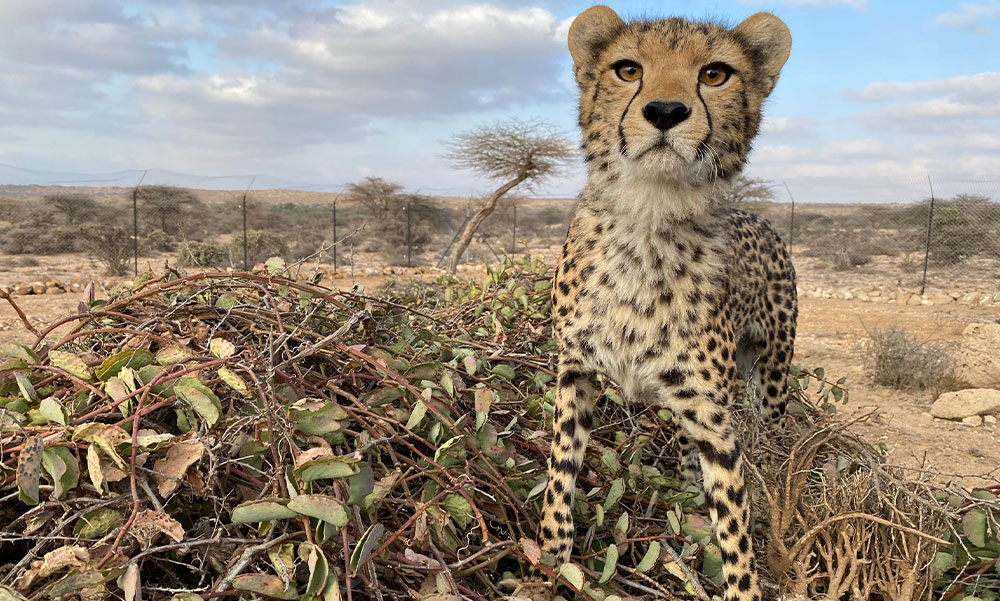
Our research has continued actively to support our conservation and policy work, including a couple very important papers published about our work in the Horn of Africa. One of the papers was on the genetic makeup of the confiscated cheetahs in Somaliland. This paper contributed to the northeastern subspecies of the cheetah to be uplisted by IUCN to Endangered status a few weeks ago. Our long-time work with this region is showing results, but we remain diligent. This year we were represented at the Convention for Migratory Species (CMS) meeting which is responsible for the African Big Cat Initiative (ACI), as well as a CITES non-detriment finding workshop, and then celebrating International Cheetah Day on an international platform at the Climate COP28 in Dubai. We are strategic and diligent in our efforts in bring forward what is needed and what must be done if we will collectively save the cheetah for the future. Our research teams lead by Dr. Anne Schmidt-Kuentzel (Director for Animal Health and Research), Dr. Shira Yashphe (Director for Illegal Wildlife Trade), Ed Brown (Senior Adviser for Illegal Wildlife Trade and Policy), Dr. Bogdan Cristescu (Director for Ecological Research), Dr. Bruce Brewer (General Manager and Director for CCF’s Biomass Programs), Dr. Indrani Sasmal (Director for Grants) and Dr. Jane Galton (CCF UK Executive Director), have worked closely together to develop supportive grants to conduct the work in both Namibia and Somaliland to help save the cheetah. Of course our work is not done.
In Namibia, our research, conservation and education has continued full force. We have been a part of a 15 organization, EU grant for a ‘Steambio’ project which is set up at CCF’s Biomass Technology Centre. This has seen many partners come and go through the year and has taken a lot of Bruce, Johan, Cameron and Matti’s time, and more planned for next year as well. CCF’s Forest Steward, Matti Nghikembua has been finalizing his PhD and he plans to defend in Finland early in the new year. This year we covered vast area with both camera traps and the use of detection dogs to better understand the ranges of the cheetahs, using photos to identify individuals and the scat found by the detection dogs to also know individuals though DNA analysis in our genetics lab. Much of this work was conducted by our 2 PhD students, Tim Hoffman and Stijn Verschueren along with several MSc students (we had nearly 10 finish their Master’s this year).
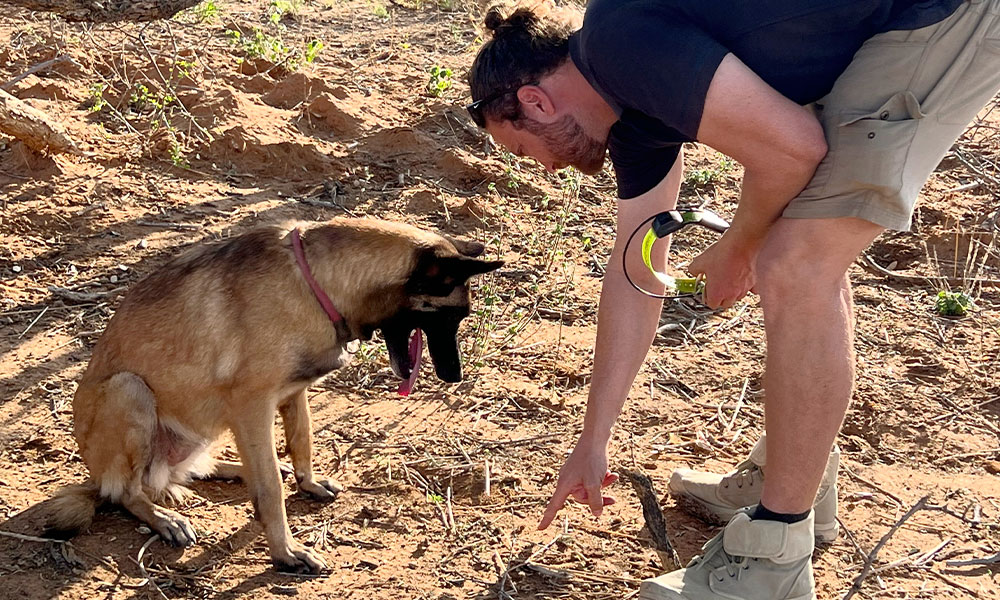
Unfortunately several cheetahs were caught by farmers in Namibia this year however, most we were able to collect, working with the Ministry of Environment, Forestry and Tourism (MEFT), and most were able to be released. At the end of the year (two weeks ago), we were inundated with 6 cheetahs caught. Of these, 2 will have to stay at CCF for a period of time, as they are too young to go out into the wild, but they will be able to be rehabilitated. One of the cats is too young for release immediately, but will be able to be released in the next few months, and the other three we are waiting on a new batch of satellite collars before releasing them in January. We have two other cheetahs, now old enough, which will be rehabilitated to Erindi Private Game Reserve also in early January. Erindi continues to be a very good partner for rehabilitation of orphaned cheetahs. This year Hela, one of our rehabilitated female cheetahs which had been selected for India reintroduction a year ago, was found to be pregnant so she stayed in Namibia and gave birth. She and her cubs were then transferred to Erindi at the beginning of the year, however in September she was wounded badly during a hunt. Our veterinary team, including Drs Ana Basto and Mercelin Gawanas were able to visit Erindi regularly and treat Hela for over 2 months while the team there helped her with food during her recovery. She is healed now and hunting regularly and her cubs are growing fast! In Namibia, we have been tracking several other cheetahs throughout areas of Namibia. Many of these cheetahs are being tracked in the east where we setup CCF East about 5 years ago, with Dr. Hanlie Winterbach and Johan Viljoen spend all their time with the farming communities there to try to stop the catching and killing of cheetahs in that area. Our effort to keep cheetahs free and in the wild is what Cheetah Conservation Fund is known for throughout the world, and with this we have been able to share our experiences with others in cheetah range countries to help them keep as many cheetahs living free and in the wild.
This year we had a very successful One Health Campaign again, in the Eastern Communal Area where we vaccinated nearly 3,000 domestic dogs (and cats) and taught about livestock management and herd health. This work has been supported for the past several years by the Foundation for Human Rabies Education and Eradication (FHREE). In addition, our Future Conservationists of Africa, school educational programs also were active after a couple down years from COVID-19, and they taught over 15,000 school learners.
We had Barth Balli and Eli Walker, individually, in India through much of the year helping train the India rangers in cheetah management and tracking. The project in India has had a lot of ups and downs with more success than the harsh media has shared. CCF’s role in the project is as consultants and as trainers. This is an India project with support from the Namibia and South Africa governments. There will be more reintroductions over the years to come. This was an eye opener for all of us as to how harsh the media can be. But all in all CCF is supportive of the project and of the progress and will continue to consult as asked, for the years to come. CCF will also continue to help other countries with their thoughts around reintroduction or augmentation of existing small populations.
Our livestock guarding dogs had another great year under the great direction of Calum O’Flaherty, our smallstock and livestock guarding dog manager, and his team. We had more puppies and more farmers successfully living in harmony with predators, as the dogs protect their flocks. The dogs don’t just work alone, our Future Farmers of Africa Training programs continued with regular support to the farmers who have dogs, and other farmers thought out the country interested in learning more about better livestock management. In particular, our dairy goats have become a big hit in the country, as more farmers have learned the benefits of having fewer goats which produce milk, and our trainings show how to make cheeses, soap and even candles; these can all be made without electricity. Our ice cream is a huge hit and has been our biggest seller at our café, so much so that we got a donation to install a gelato freezer in the café!
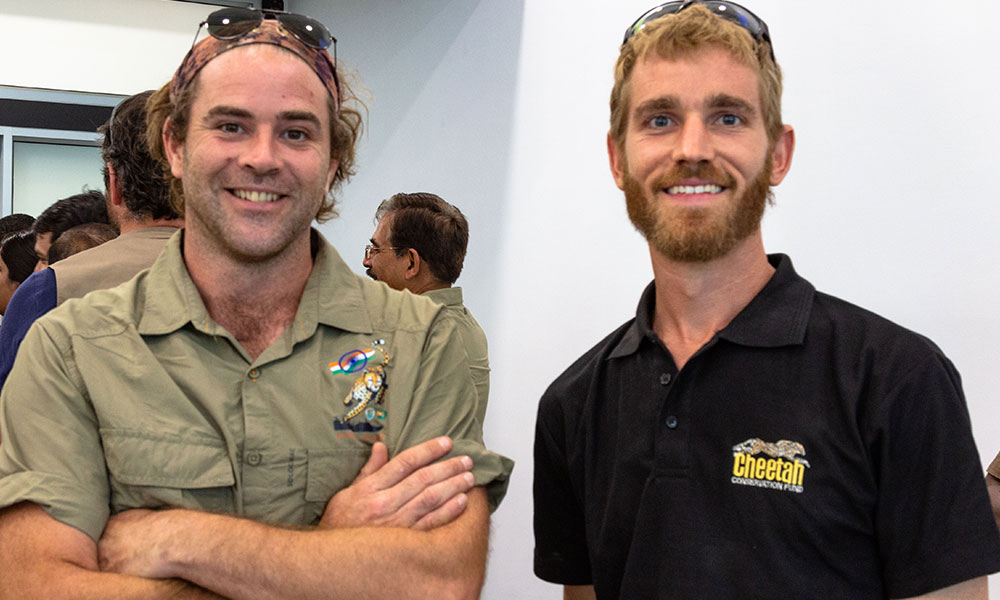
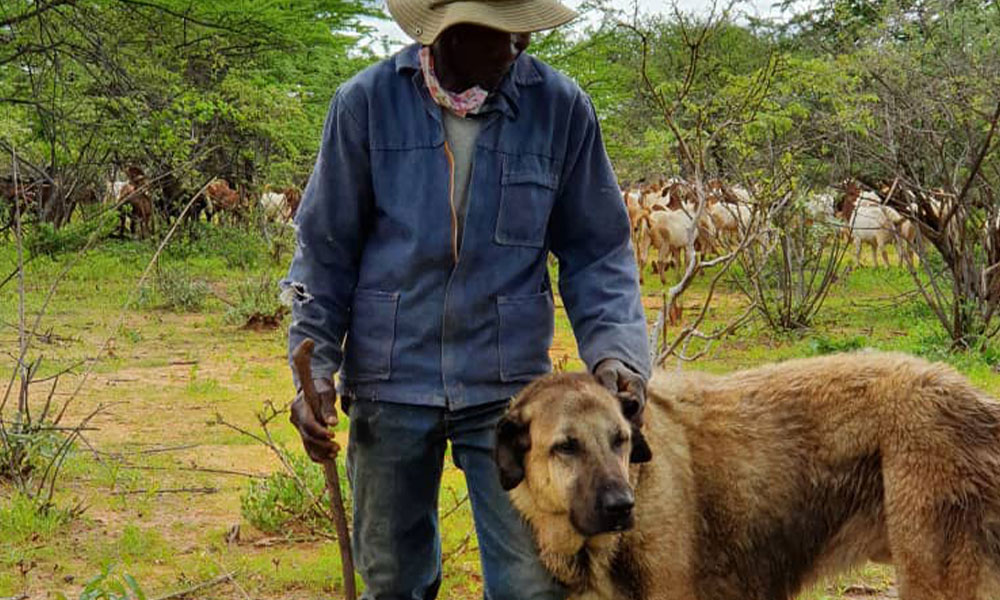
Ecotourism has continued strong this year, thankfully, after the down years of COVID-19. Even at the end of December, our lodge has overnight guests almost every night! It is rewarding to hear the comments from the tourists who visit. They give us ALL huge compliments including about the dedication of our staff, the enjoyment of seeing and learning about our work, and the dedication of our entire CCF communities around the world who to help support the ongoing work to save the cheetah. We also welcomed several members of our international board and trustees as well as many donors to CCF this year, in both Namibia and Somaliland. It was very nice to share CCF Namibia with Robert Skidmore, CCF’s Director of Operations and Finance, CCFUKs new Development Director, James Hanaway, the CCF UK Executive Director, Dr. Jane Galton, and Birgit Braun, the Executive Director of AGA, CCF’s partner in Germany. They learned more about what we do and are better able to articulate our messages to their teams of staff and volunteers in their countries. To welcome all of you at our CCF facilities is special for us. As we can share with you, firsthand, what your support goes to – experiencing Conservation in Action. Our teams hope you are also proud of the joint efforts being made, as we Save the Cheetah and Change the World.
I was very happy to see so many of our CCF supporters on my two international tours this year, to the US, Canada and the UK. Thanks for all our friends who helped with the planning and sponsoring of the events. And a big thanks to our CCF USA development team who helped bring the events together including Paula Martin, Dionne Stein, Jess Sorrentino, Brian Badger, Heather Ravenscroft, Susan Kauffman, and we welcome new members in the US to the team, Jennifer Johnson, Marcia Sivek, and Lexi Beaty. And at CCFUK we welcome James Hanaway as the new Director of Development.
Our 2024 begins with a splash as we will be hosting the 1st Global Cheetah Summit on the 28 -31st of January 2024 in Addis Ababa, Ethiopia, sponsored by NEOM.
We have been working together with the Ethiopian Wildlife Conservation Authority (EWCA) and partners from global conservation including CITES, CMS, IUCN, University of Oxford’s WildCRU, Cheetah Conservation Initiative, the IUCN Cat Specialist Group, IUCN Antelope Specialist Group, IUCN Canid Specialist Group, IUCN Conservation Translocation Specialist Group to bring together a joint diverse group of stakeholders representing governments, NGOs, conservationists, community members, private businesses, and economists from around the world to discuss the plight of the fastest land animal. Teresia Robitschko and Jess Sorrentino have been busy with coordinating all the international colleagues who will be attending the Summit.
Cheetahs continue to be threatened by habitat loss and fragmentation, human-wildlife conflict, and increasing poaching and illegal trade. Each of these threats will be compounded further by human population growth and climate change. These threats are multi-faceted and often interlinked, threatening their survival into the future. As the human population grows, more cheetah habitat is lost to agricultural production, further increasing the fragmentation, reducing wild prey populations, and increasing the chances for cheetahs to come into conflict with people. In addition, many farming and grazing practices are responsible for habitat transformation and degradation, accelerating desertification and negatively impacting wildlife populations. Finally, human-wildlife conflict reduces the cheetah population in the wild, either through direct persecution or via illegal wildlife trade.
Conservation practitioners understand the threats facing the cheetah, but now is the time to implement more of the solutions in the cheetah’s current range and to develop new habitat for this iconic big cat, which lives in low density and requires vast home range territories. Advocates for the global community of cheetah conservation are seeking to identify the swiftest actions necessary for securing a viable cheetah population into the future. Through this summit, participants will identify the required steps needed in the next two to five years to combat the most significant threats facing the cheetah. We will keep you posted on the outcome of the Summit. Several of our CCF members will be in attendance. If you are interested in joining, please let us know.
Thank you for all your support. Please share this letter with your CCF friends. We wish you a very Happy New Year and we continue to Save the Cheetah and Change the World.
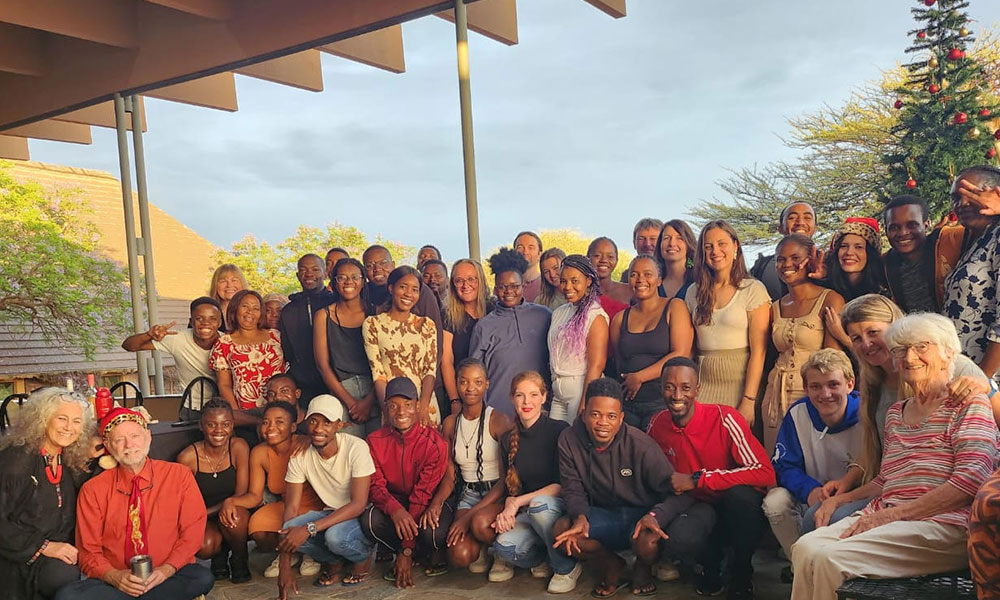
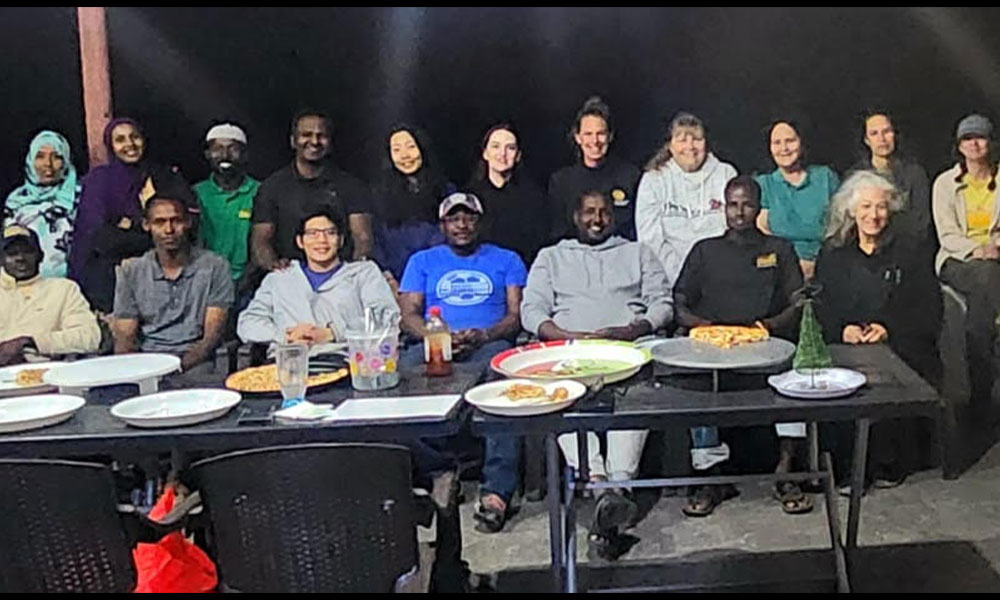
Related Reading
-
February 1, 2024
Celebrate Valentine’s Day By Helping CCF to Name a Cheetah Cub -
January 4, 2024
Wish a Happy Birthday to Dr. Laurie Marker -
January 2, 2024
Cheetah Conservation Fund 2024 Resolutions

